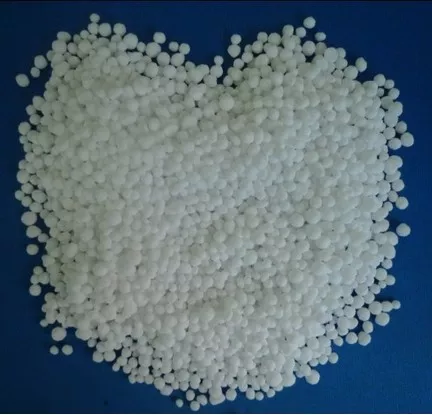Avocado Tree Cultivation Introduction
They are dainty leaves and fruity avocado trees. Besides being tropical to subtropical plants, the avocado trees are tough on specific growing conditions in terms of temperature and water content. It is important to understand their cultivation requirements because they are quite sensitive to temperature variations and moisture levels.
One major aspect of growing avocado trees is choosing the right fertilizer. The choice of organic fertilizers for avocado trees can significantly impact their growth rates, health status as well as fruit production. Good use of fertilizers not only improves the quality of produce but also secures the future sustainability of the gardens. Dr. Linda Peterson, an agricultural specialist adds that “Selection of appropriate organic fertilizers is a key step in maximizing productivity potential from avocado tree while maintaining soil health and environmental quality.” Therefore, it is important that successful avocado cultivation starts with informed practices that embrace care right from inception.
Nutritional Requirements for Avocado Trees
For their survival and fruiting purposes, these flowers require a special diet rich in some nutrients. Some important nutrients for avocado trees are nitrogen (N), phosphorous (P) and potassium (K). Others include micronutrients like zinc, manganese, iron and copper which must be available for productivity.
Nitrogen is very important during early tree growth stages since it supports leaf and shoot development. However, it should be managed carefully because high amounts promote more foliage with poor yields whereas low quantities limit growth.
Phosphorous helps root formation flowering begins among other things It’s therefore crucial especially when fruits start developing in order to ensure healthy fruit formation.
Potassium ensures general well-being and helps regulate photosynthesis besides participating in water absorption plus protein –and starch- synthesis critical during fruiting stage.
Organic fertilizers can address these nutritional needs effectively as they feed slowly thereby ensuring continuous supply for sustained growth and development. “With an abundance of macro-and micro-nutrients typically required by Avocado trees, organic fertilizers place them in a position to grow better and stay away from diseases,” Dr. Emily Bray, a tree crop physiologist, noted.
The best organic fertilizer for avocados should posses balanced NPK ratio as well as some essential microelements depending on the stage of growth of the tree. This is because such a strategy ensures that avocado trees are given the necessary nutrients for their healthy and fruitful harvests.

Importance of Organic Fertilizers for Avocado Trees
Synthetic fertilizers have been a popular choice among growers, but organic fertilizers are known to be much better. These benefits help the plants to grow healthily and bear fruits with high nutritional content and also promote environmental conservation.
Fruit Quality: Organic fertilizers have slow-release properties that provide even nutrient supply. It helps in better root development and stronger fruit for avocado trees. In general, plants are more able to use nutrients coming from natural sources than those which come from synthetics. “Organic fertilizers give a balanced diet that cannot cause sudden unsustainable growth sometimes experienced using synthetic fertilizers,” Dr. Aaron Smith, an expert in organic agricultural systems, says.
Soil Health: The soil structure gets improved by organic manures hence its water holding capacity goes up increasing its ability to hold/retain water and nutrients. This is important for avocados because they are intolerant of excess moisture and require well-drained soils. The living organisms in the fertilizer create a healthy soil environment that has beneficial bacteria for nutrient absorption while making it strong against pests or diseases.
Environmental Footprint: Opting for organic fertilizers reduces the ecological impact of farming significantly. On the other hand, chemical traces can accumulate in groundwaters through leaching, affecting aquatic life when reaching water bodies through runoffs.The best organic fertilizer for avocado trees can help farmers avoid contributing towards such environmental concerns thus protecting our wildlife and ecosystems at large.
Sustainable Nature: Application of organic fertilizers is sustainable as it not only takes care of the current crop but also future crops without compromising on their health status. Avoids accumulation of synthetic chemicals which result in degradation of soils over time leading to poor fertility levels as such soil becomes less productive into future Too many years This allows continued productivity of soils far into the future something that all forms part of principles behind sustainable agriculture.
In conclusion, organic fertilizer does not only enhance strong growth and fruiting of avocado trees but they also play a crucial role in maintaining soil fertility thus safeguarding the environment making them an indispensable option for responsible and efficient farming.
Various Types of Organic Fertilizers for Avocado Trees
For avocado trees, the proper organic fertilizer is one chosen from different types available and fitting their specific needs.
Compost: Compost is among the most useful organic fertilizers. It is great that it improves soil texture and enriches it with nutrients that are needed by plants. This substance not only provides nutrients to soil but also promotes growth of soil microbes which take part in nutrient uptake by crops.
Animal Manure: Animal manure such as well-rotted cow, horse and chicken dung are rich in nutrients and can provide a good nitrogen boost. Be sure to fully decompose manure before applying near avocado tree roots because this will burn them. Furthermore, manure enhances water holding capacity and structure of the soil hence adding considerable amount of organic matter into it.
Worm Castings: Another good organic fertilizer for avocados is worm castings. They contain a lot of readily absorbed plant food elements. Additionally, they improve the structure of soils meant for growing these fruits while supporting useful microorganisms inside.
Bone Meal: Bone meal, being rich in phosphorus, offers excellent benefits during flowering or fruit formation in avocados. It assists in strengthening root systems and bettering fruit quality. Moreover, bone meal contains calcium that is necessary for cellular development leading to disease resistance.
Blood Meal: Blood meal contributes high amounts of nitrogen to help with the quick growth processes in avocado trees such as vegetative stage development periods. However, don’t apply too much since this would burn your plants with nitrogen,
“Whereas choosing an organic fertilizer for avocado trees typically comprises a combination of these kinds fitted individually towards each tree developmental stage from planting until fruiting”, suggested Dr Henry Olsen – a horticulturist expert on tree crops. By so doing all essential minerals required by these trees at every stage will be made available thus ensuring healthy growth resulting into bountiful harvests.
How to Use Organic Fertilizer on Avocado Trees
Applying the best organic fertilizer for avocado trees correctly is crucial in order to make the most of these nutrients. Healthy growth and fruit production by the trees can be ensured by correct application.
Step-by-Step Application Guide:
Time: The early spring and late summer are the best times for applying organic fertilizers. These are periods during which, avocado trees require more nutrients to stimulate their growth as well as fruit development.
Preparation: If you are using granular fertilizers such as bone meal or chicken manure, spread them evenly around the base of the tree extending out to its drip line (the area right under the outer circle of branches). To avoid burning your plants, dilute liquid fertilizers like fish emulsion or compost tea according to product instructions.
Application: Apply to moist soil with fertilizer as this prevents root burn. Lightly water dry soil before applying fertilizer if it is necessary. This will enable a better blending of nutrients into soils.
Dosage: Apply approximately 1 pound of organic fertilizer per inch of trunk diameter at knee height for avocado trees even though one should follow what is indicated on a fertilizer package as an example.
Mulching: When you have finished applying your fertilizers, cover your ground with organic mulch such as straw or wood chips. Mulching also helps retain moisture in soil hence it may protect organic materials from decomposing too rapidly after being applied in forms of conventional ferts.
Seasonal Considerations:
Spring Application: Focus on nitrogen-rich fertilizers to support vigorous leaf and branch growth.
Summer Application: Many flowers and fruits can be encouraged by selecting those containing more phosphorus and potassium among other things.
Monitoring and Adjustment:
Monitor your avocado tree’s health regularly after planting it. Observe signs such as increased vibrant leaves, faster growth rate, and improved fruit production that suggest positive changes following applications made after periodic checks. Adjust your fertilizer type, quantity, or application frequency in response to symptoms of either inadequate or excessive nutrient supply such as yellow leaves and retarded growth.
By following these guidelines, you can effectively use organic fertilizers to enhance the health and productivity of your avocado trees, ensuring a bountiful and quality harvest.

Monitoring and Regulating Fertilization Practices
For effective fertilization of avocado trees, it is crucial not just to apply the best organic fertilizer for avocado trees initially but also to engage in constant monitoring and adjustment based on tree response and environmental conditions.
Monitoring the Health of Trees:
- Regularly check your avocado trees for signs of nutrient efficacy. Key indicators include the color of the leaves, robustness of branches, and the quality and quantity of the fruit.
- Be vigilant for symptoms such as yellowing leaves, which may indicate a nitrogen deficiency, or lush dark green branches without fruits, suggesting an excess of nitrogen.
- Conduct soil testing annually to assess soil pH levels and nutrient content. This data will guide the adjustment of fertilizer composition and dosage to meet your trees’ specific needs.
Adjustment of Fertilization Techniques:
- If you observe signs of over-fertilization, such as salt buildup in the soil or leaf burn, reduce the frequency and amount of fertilizer application.
- Conversely, if growth or fruiting is suboptimal and soil tests show deficiencies, consider increasing the amount or changing the type of fertilizer. For instance, if potassium levels are found to be low, opting for a potassium-rich fertilizer can be beneficial.
- Always take into account the local climate and soil type when making adjustments. In areas with high rainfall, nutrients might leach out quickly, necessitating more frequent applications.
Seasonal Adjustments:
- Adapt your fertilization strategy according to the seasons. Increase fertilization slightly during the growing season to enhance nutrient uptake, and reduce it during dormant periods.
- Prior to winter, consider increasing the fertilization rate slightly so that trees can store more nutrients for use in early spring when temperatures begin to rise.
Through diligent monitoring and making thoughtful adjustments to fertilization practices, farmers can continue to enjoy healthy fruit yields from their avocado orchards year after year. This proactive approach helps optimize nutrient utilization, minimizes waste, and ensures the sustainable growth and development of avocado orchards.
Conclusion
To sum up, finding and using the best organic fertilizers for avocado trees is a key element in sustainable and productive avocado farming. Through proper selection and use of suitable organic fertilizers, cultivators can promote growth, health and increase yield of their avocado plants. These practices do not only help the development of the trees but also contribute to healthier ecosystems by maintaining soil quality as well as curtailing chemical runoff into rivers.
There is a global shift towards organic farming whereby farmers are encouraged to use the environmentally friendly methods in growing avocados. By doing this they will not only improve the quality and quantity of their produce but also align themselves with broad sustainability goals and environmental care. Further monitoring, adjustment and innovation on fertilization strategies will ensure that future generations continue harvesting from productive avocado orchards.
It takes embracing organic fertilizer techniques coupled with informed decisions on plant nutrition to make healthier harvests possible as well as achieve an environmentally sustainable form of agriculture. Additionally, these steps benefit current crop cycles while ensuring that such lands remain fertile and productive for coming generations.
For comprehensive information on the best organic fertilizers for avocado trees:
- USDA’s EarthExplorer – Although primarily focused on geographical data, EarthExplorer can be an excellent resource for understanding the environmental aspects that affect agricultural practices, including avocado cultivation. It provides detailed satellite imagery and environmental data that can help in planning and monitoring agricultural activities effectively.
- Your Online Account at IRS.gov – While this site is mainly for tax-related information, it sometimes includes educational material and webinars about agricultural practices and economic management that could indirectly benefit farm management and organic fertilization practices.







